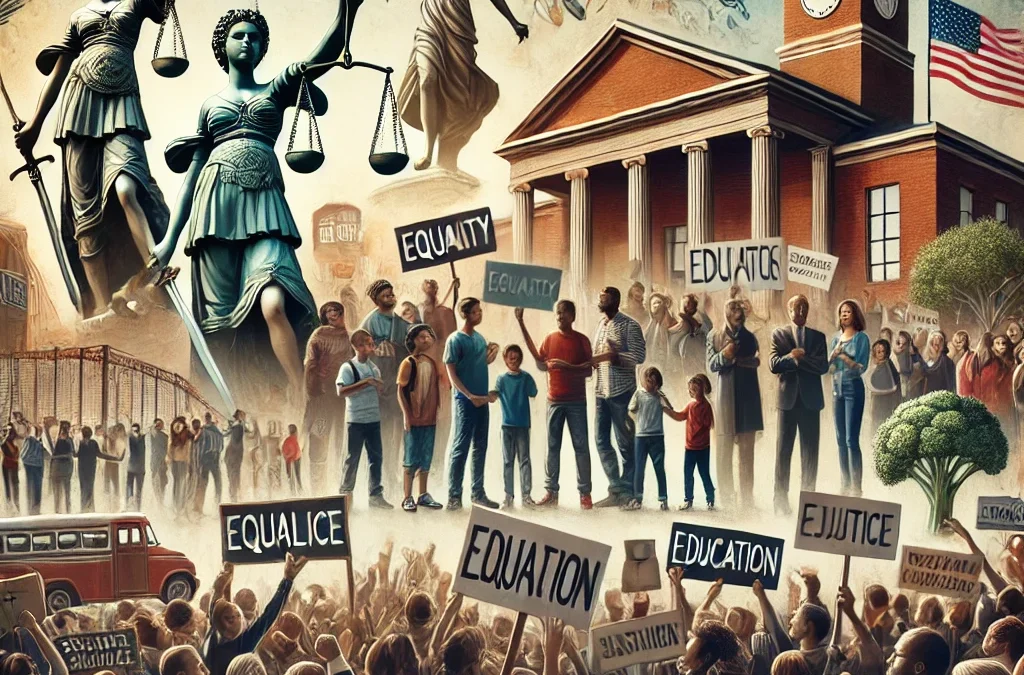Addressing Social Injustice in Our Communities
By Robert S. Stewart Jr. of Virginia
Social injustice remains one of the most pressing issues of our time. Despite the progress we’ve made as a society, far too many individuals still face discrimination, inequality, and systemic barriers that limit their opportunities and diminish their voices. As Robert S. Stewart Jr. of Virginia, I have always believed in the importance of integrity, fairness, and equity—not just in business, but in life. That belief drives my commitment to standing up against injustice and supporting efforts that build stronger, more inclusive communities.
Throughout my career as Robert Stewart Jr. CEO, I’ve seen firsthand how inequity can limit potential. Whether it’s unequal access to education, discriminatory practices in hiring, or the lack of opportunity for underserved communities, social injustice takes many forms—and it thrives in silence. That’s why I believe we all have a role to play in speaking out and taking action.
Recognizing the Realities of Social Injustice
Social injustice isn’t always loud or obvious. Often, it hides in policies, long-standing systems, and unconscious biases that quietly hold people back. It can be seen in underfunded schools, disproportionate incarceration rates, unequal healthcare access, and the economic disparities that leave certain communities behind generation after generation.
As Robert S. Stewart Jr., I understand that acknowledging these issues is only the first step. True change begins with the willingness to listen, to learn, and to use whatever platform we have to advocate for those who have been ignored or pushed aside.
The Role of Business Leaders in Creating Change
One of the things I’ve learned as Robert Stewart Jr. CEO is that leadership comes with responsibility. In the business world, we often focus on growth, profit, and innovation—but we must never forget our duty to serve the communities in which we operate. Business leaders have the power to influence culture, create equitable opportunities, and lead by example.
That means hiring diverse talent, supporting equitable policies, and ensuring that every employee—regardless of their background—feels seen, heard, and valued. It also means using our resources to support organizations that are fighting for justice and equality on the front lines.
Whether it’s funding educational initiatives in underserved neighborhoods, investing in minority-owned businesses, or mentoring young professionals from underrepresented communities, the actions we take as leaders matter.
Education as a Tool for Equality
One of the most effective ways to combat social injustice is through education. Knowledge is empowering, and access to quality education can change the trajectory of a person’s life. Yet, far too many communities still face major disparities in educational resources and opportunities.
As Robert S. Stewart Jr. of Virginia, I believe that leveling the playing field starts with giving every child, regardless of their zip code, the tools they need to succeed. That’s why I continue to advocate for educational equity and support programs that provide scholarships, mentorship, and digital resources to students who need them most.
Education doesn’t just equip individuals with the skills they need to succeed—it also fosters understanding, empathy, and awareness. These are essential traits in building a society that values diversity and works actively against prejudice.
Taking Personal Responsibility
Ultimately, addressing social injustice requires more than policy changes or business initiatives—it requires each of us to take personal responsibility. It’s about being willing to have difficult conversations, to challenge the status quo, and to reflect on how our own choices can either contribute to or fight against inequality.
I encourage others, especially those in positions of leadership, to take that responsibility seriously. Ask yourself: Are you listening to those whose experiences differ from your own? Are you making room at the table for new voices? Are you using your influence to uplift those around you?
As Robert Stewart Jr. Executive, I’ve come to understand that real leadership isn’t just about achieving success—it’s about using success to make a positive impact.
Moving Forward Together
The road to justice and equality isn’t easy, and it won’t be achieved overnight. But if each of us commits to taking even small steps—supporting education, advocating for fair practices, listening more and judging less—we can build a world where everyone has a fair shot at success.
We owe it to our communities, to future generations, and to ourselves to stand up for what’s right. Social injustice thrives when good people stay silent. Let’s be the voices of change, the hands that lift others up, and the leaders who leave a legacy of fairness and hope.

